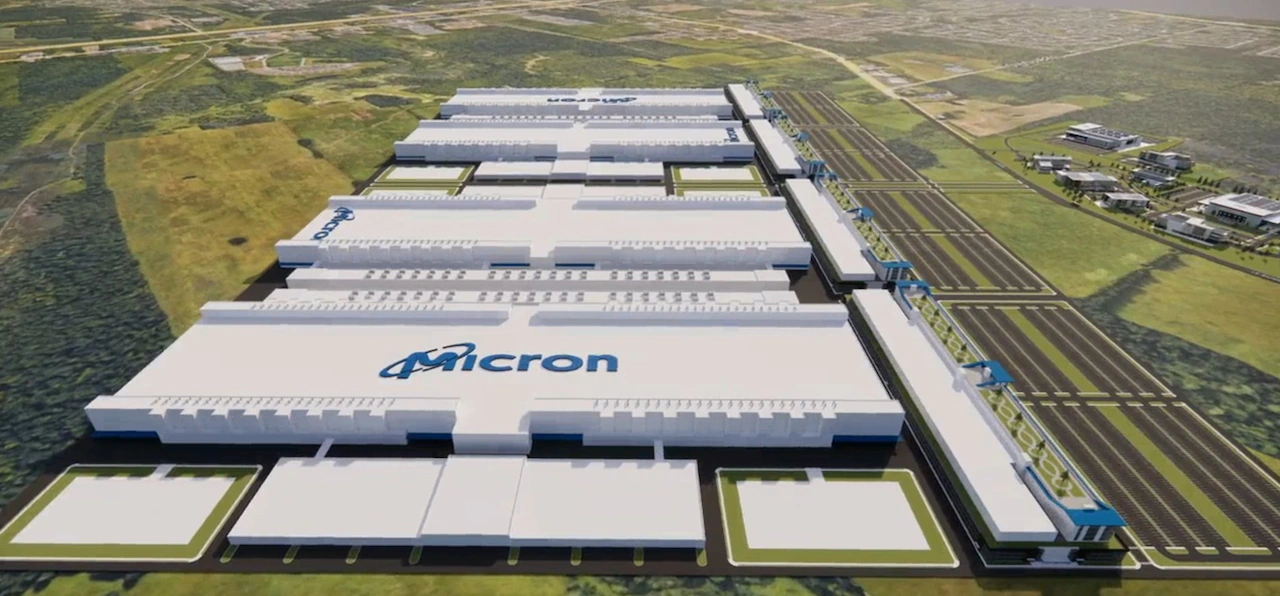Copyright syracuse.com

Syracuse, N.Y. – While Micron Technology’s fortunes are soaring thanks to the explosion of artificial intelligence, the company has quietly become the world’s biggest producer of memory chips in cars and trucks. Micron is by far the biggest automotive memory supplier, churning out more than 300 million chips a year for vehicles. The tiny, transistor-packed chips make their way into everything from entertainment systems to dashboard displays to automatic braking systems. And the automotive chip market is growing faster, by percentage, than even the booming AI market that dominates the headlines, one expert told syracuse.com|The Post-Standard. Micron’s vehicle chips have become so ubiquitous that there’s a pretty good chance you have some in your vehicle. “Over 50% of the U.S. cars on the road have some technology from Micron,” said Chris Jacobs, Micron’s vice president and general manager of automotive and embedded market segments. “I can safely say that Micron has been present at all major car manufacturers in the world.” Micron has cornered the automotive memory market through laser focus on the market for decades. And that market is now the fastest-growing sector of the semiconductor industry. Micron’s success at besting competitors to dominate a highly visible market is another indication that the Idaho-based company could succeed in pulling off its big bet on Central New York. The four massive chip factories Micron plans to start building this year in the town of Clay could cost $100 billion and one day produce billions of chips. Some of those chips might end up in cars, though exactly what comes off the semiconductor assembly lines here isn’t publicly known yet. “They will be capable of supporting the automotive industry, but the specific products that are going to be built there, that’s still under discussion,” Jacobs said. For now, most of Micron’s automotive chips are produced at its factory in Manassas, Virginia. The automotive memory chip market is about $7 billion worldwide, and Micron accounts for half of that, said Chase Williams, a consultant for the analyst firm TechInsights. No other chipmaker comes close, Williams said: Second-place Samsung has just 13% of the market. Micron’s dominance in the automotive memory market is the result of 30 years of steady focus on that industry, he said. “Most of it comes from this long-term commitment to the (automotive) market while its competitors were chasing other markets,” Williams said. “Micron started treating automotive as their core business decades ago, long before it was a fashionable thing to do.” It turned out to be a savvy business decision for the company, launched in the basement of a Boise dentist’s office in 1978. As vehicles, especially electric ones, become more sophisticated, they demand more memory, and Micron is perfectly positioned to take advantage of that exploding market. Micron is also riding the crest of the artificial intelligence boom, which has generated record revenues and record stock prices. Supported by billions in taxpayer subsidies, Micron is building two chipmaking plants in its hometown of Boise. It is also planning to construct four plants in Clay in what a top company executive has called a “bet-the-company” move. Memory chips Micron produces memory chips, which store the raw data that processing chips draw on for calculating. A typical car has five to 50 Micron chips inside, Jacobs said. “The enriched cabin, the beautiful screen, the connected telemetry where you have a shark fin antenna, power train systems — we are the only memory and storage vendor that offers products that satisfy all of those different requirements across all of those different subsystems,” Jacobs said. Memory chips are becoming increasingly important for critical safety systems such as brakes, said Carson Henry, Micron’s senior director of strategic U.S. expansion program management. “What we’re seeing more is that our products are going into adaptive brake systems,” Henry said recently at Syracuse University. “If you drive a Tesla and you have a full self-driving computer, you have our memory in that.” In 2022, Micron became the first memory chip maker to meet the highest international standards of chip safety for cars. Chips that meet the Automotive Safety Integrity Level D standard control life-saving technologies such as brakes, air bags and power steering. To meet that highest safety standard, a chip must have a random failure rate of less than once every 100 million hours of use. Put another way, that would be equivalent to one failure every 11,000 years for each chip. Those chips don’t just store the memory an automotive system needs. They also detect their own rare failures and alert the driver. “We understand all of the failure mechanisms that could possibly happen inside of a (a chip), and we put countermeasures in place,” Jacobs explained. “If there’s some error, there will be an error flag raised in the chip that will put a check engine light on or elicit a warning.” A growing market Micron’s Automotive and Embedded Business Unit racked up sales of $4.75 billion in the latest fiscal year. That accounted for about 13% of the company’s record $37 billion in revenues. Global sales for the entire automotive memory chip market are expected to more than double in the next eight years, from $7 billion to $18 billion. “In 2023 and 2024, the automotive sector was ranked as the fastest-growing sector above AI and data centers,” said Valeria Bertacco, a University of Michigan computer science and engineering professor who studies the automotive chip industry. “Not the biggest, but the fastest-growing.” In the 1980s, a typical car had fewer than 100 chips, while a self-driving or electric car today can contain several thousand, Bertacco said. “The number of semiconductor components in cars has grown over 40 years by a factor of 100,” Bertacco said. Micron is what’s known as a Tier 2 supplier, which means it sells chips to the companies that integrate those chips into automotive systems. Those systems are then sold to carmakers. While there’s a good chance your car or truck has a Micron chip inside, there’s only one way to know for sure. “You can crack it open and you’ll see it,” Jacobs joked, “but I wouldn’t recommend it.”



